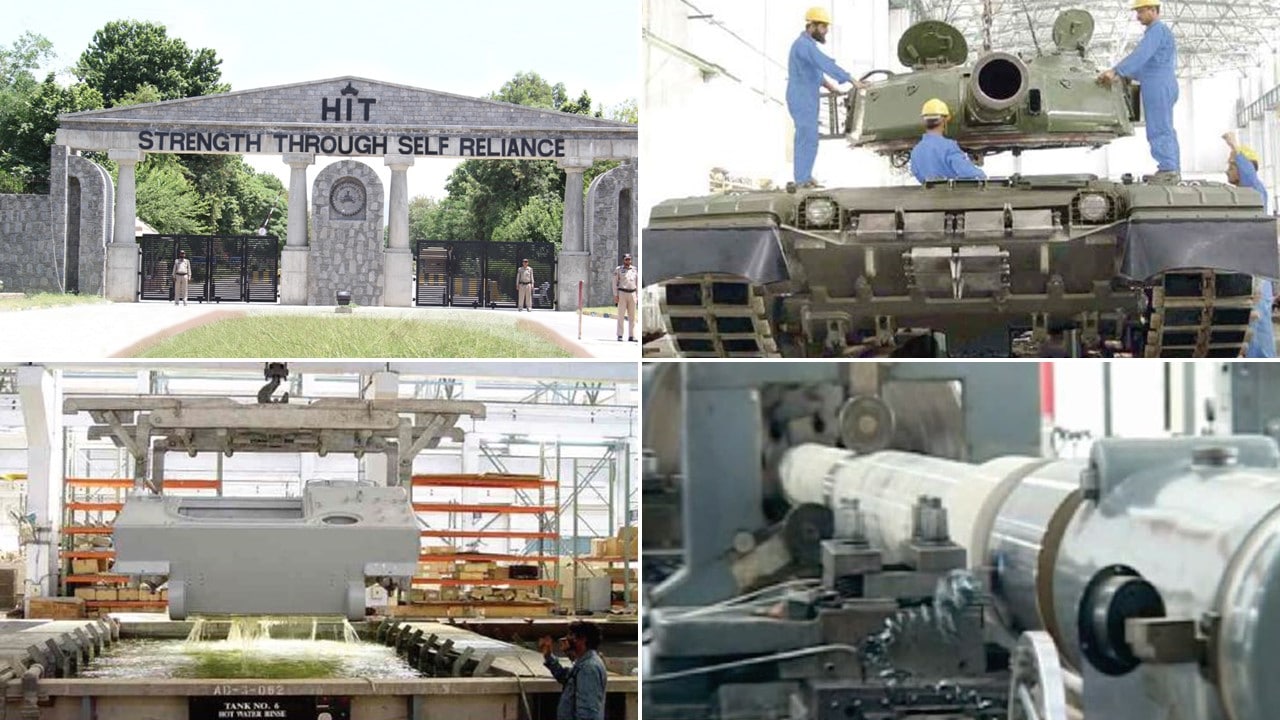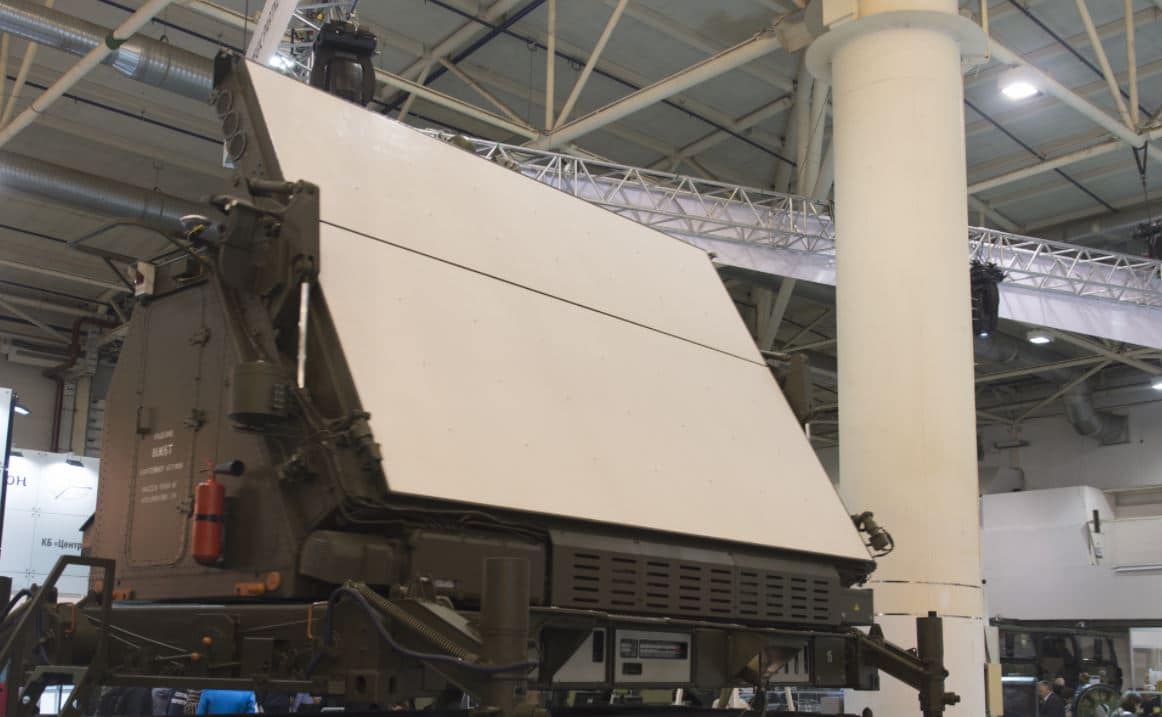2346Views 9Comments

Heavy Industries Taxila outlines plans for modernization and growth
Heavy Industries Taxila (HIT), Pakistan’s principal supplier of main battle tanks (MBT), armoured personnel carriers (APC) and light armoured vehicles, outlined its plans for modernizing its facilities for the purpose of fulfilling the Pakistan Army’s current, emerging and long-term requirements.
According to the HIT official Col. Bakhtiar, who was speaking to the Pakistan news broadcaster PAK News, HIT will begin moving to an automated manufacturing processes. In particular, HIT is aiming to transition “complete tank manufacturing to robotics” by June 2018 with adherence to the “latest international standards.” HIT envisions being at par with contemporary overseas tank manufacturing vendors.
HIT’s tank manufacturing facility is currently equipped with seven-axis CNC [Computer Numerical Control] machines, with the Czech vendor Škoda Machine Tool being among the CNC suppliers. HIT also maintains a similar manufacturing site for APCs, specifically the M113 and its localized variants (e.g. Talha).
The impetus driving HIT’s modernization efforts is the reality that MBTs themselves are changing in terms of the technology being infused (e.g. in the armour) and features being added. The Army recognized these shifts and it is now imbuing HIT with the necessary advancements. It is hoped that future Pakistani MBTs will be appropriately equipped for the region’s emerging and future armoured warfare dynamics.
Bakhtiar noted that HIT is capable of rolling out four tanks per month and an annual output of 50-60. With HIT, Pakistan saves $2.5 to $3.0 million U.S. in currency outflows per tank (on a comparable tank that would cost $5 to $6 million). Indigenization is essential in that it channels defence spending into the local industry, which then serves as a stimulus to the economy. HIT can also remanufacture damaged or legacy armoured vehicles. It is aiming to rebuild over 100 APCs and 15 self-propelled howitzers (SPH) for 2017.
As per the HIT official, as many as 8,000 components are required to manufacture one MBT. In regards to the al Khalid MBT specifically, HIT domestically sources the alloys necessary for the armour (from another undisclosed Pakistani entity). HIT also manufactures the tank’s 125-mm smoothbore main gun. In addition, Centre for Advanced Research in Engineering and Global Industrial Defence Solutions (GIDS) supply HIT with solid-state autoloaders and Integrated Battlefield Management Systems, respectively.
Notes & Comments:
While Pakistan’s state-owned enterprises have called for modernization funding (e.g. Pakistan Ordnance Factories), HIT seems to have firm deadlines (which implies funding) for its advancement projects. It seems that transitioning HIT’s tank manufacturing line to automation is aimed at boosting efficiency and clearly demonstrating adherence to current and emerging international standards. However, it should be noted that HIT’s primary objective is to supply the Army with solutions that are modern, affordable and secure in terms of support and maintenance. Exports are a secondary objective drawn from surplus capacity.
In the coming years, HIT might be tasked by the Pakistan Army to manufacture systems of various forms that will require the entity to enhance not just its efficiency, but its product catalogue. For example, the al Khalid MBT platform’s long-term development (e.g. al Khalid-II) could see the incorporation of different armour technology. This may require HIT to build the capacity to manufacture new materials and become adept in handling new design principles. This could potentially apply to new product areas as well, such as wheeled armoured fighting vehicles (AFV), new light armoured vehicles and howitzer systems.



9 Comments
by Shakeel
Do you foresee any expansion in the role of the DESCOM division of HIT? What kind of 15 SPH are we launching?
Good to see Pakistan getting it’s act together at HIT.
Thank you Quwa.
by Rohan
HIT’s production capacity is far smaller than India’s OFB which has the capacity to produce 140-150 T-90s every year.
by John John Slade
You know? If Carousel Autoloader were replaced Turret Bustle for Al-Khalid II program then that’s good. It increase crew survivability and also has more space
in tank hull. Ukraine has those expertise.
by Omar Dar
It doesn’t matter as long as HIT is successful in fulfilling our requirements and India’s OFB is failing their requirements.
by Donny G
T-90’s are assembled under licence from Russia.
by SP
A step in the right direction. Pakistan defence manufacturing generally with the involvement of the military, academics, private sector and management consultancy can go a long way.
Pakistani producers cannot become complacent and must move with the times and keep ahead of the trends.
by ali amanat
Late and good decision but need to do more in the right directions.
by Rohan
Al Khalid (MBT 2000) are also assembled under licence from China
by Donny G
Al-Khalid is a joint development. Otherwise how would HIT be able to develop upgraded variants.
Did you not just read the article???